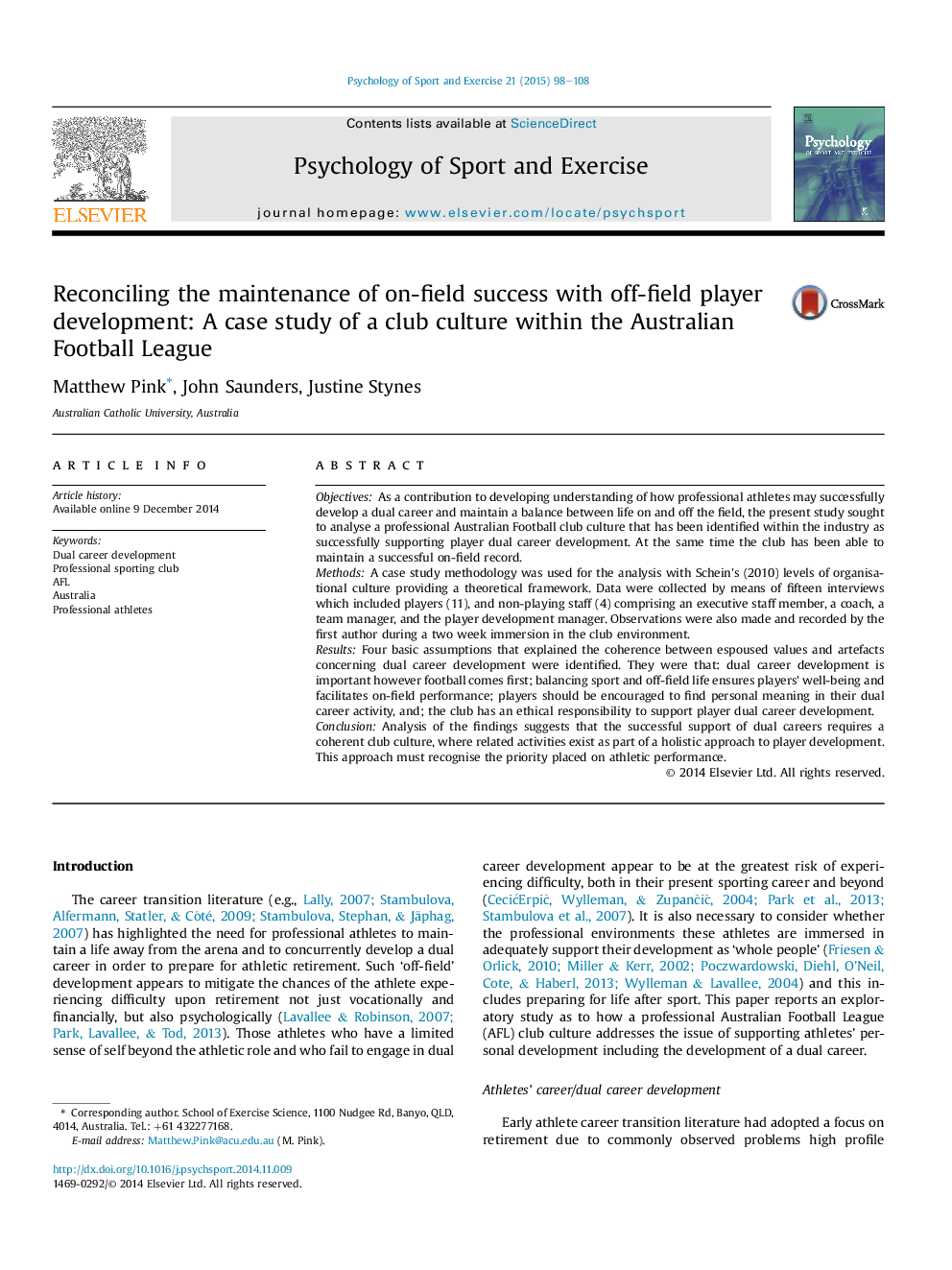| کد مقاله | کد نشریه | سال انتشار | مقاله انگلیسی | نسخه تمام متن |
|---|---|---|---|---|
| 894266 | 1472106 | 2015 | 11 صفحه PDF | دانلود رایگان |
• The club supported dual career as part of a holistic approach to player performance.
• Basic assumptions of the club dual career culture were identified.
• Players' dual career development was considered conducive to performance.
• Autonomy supportive approaches to dual career development were observed.
• The sampling of dual career activities was identified as an effective strategy.
ObjectivesAs a contribution to developing understanding of how professional athletes may successfully develop a dual career and maintain a balance between life on and off the field, the present study sought to analyse a professional Australian Football club culture that has been identified within the industry as successfully supporting player dual career development. At the same time the club has been able to maintain a successful on-field record.MethodsA case study methodology was used for the analysis with Schein's (2010) levels of organisational culture providing a theoretical framework. Data were collected by means of fifteen interviews which included players (11), and non-playing staff (4) comprising an executive staff member, a coach, a team manager, and the player development manager. Observations were also made and recorded by the first author during a two week immersion in the club environment.ResultsFour basic assumptions that explained the coherence between espoused values and artefacts concerning dual career development were identified. They were that: dual career development is important however football comes first; balancing sport and off-field life ensures players' well-being and facilitates on-field performance; players should be encouraged to find personal meaning in their dual career activity, and; the club has an ethical responsibility to support player dual career development.ConclusionAnalysis of the findings suggests that the successful support of dual careers requires a coherent club culture, where related activities exist as part of a holistic approach to player development. This approach must recognise the priority placed on athletic performance.
Journal: Psychology of Sport and Exercise - Volume 21, November 2015, Pages 98–108
